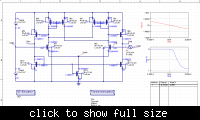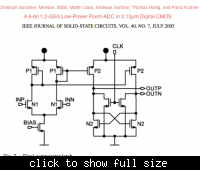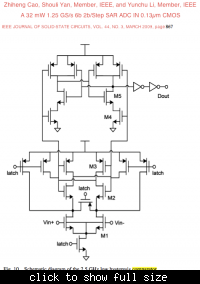geozog86
Member level 3

Hello! I am designing an comparator, with a budget of 70uA. I only care about having a clear output, and not saving that output (a latch or memory in general is not of my concern, as also hysteresis is not my concern, imagine a noise free input).
My question is the following: with such limited power, what is (in order of magnitude) my "decision time" through my circuit? I mean i've build a comparator that takes around 50nsec from the moment one input crosses the threshold of the other input till i read it to the output. I am using just some cascaded gain stages. If i use positive feedback, that delay is way more (i don't have external clock, so i use dummy resistors, and this adds unavoidably some hysteresis)....
So if i want the fastest ever comparator, how much is the delay input-->output (due to propagation delay and dynamic effects of internal caps of the transistors) that i should expect? can i get that an order of magnidude down?
Thx
PS Any ideas can be helpful, so just drop a line! thx again
My question is the following: with such limited power, what is (in order of magnitude) my "decision time" through my circuit? I mean i've build a comparator that takes around 50nsec from the moment one input crosses the threshold of the other input till i read it to the output. I am using just some cascaded gain stages. If i use positive feedback, that delay is way more (i don't have external clock, so i use dummy resistors, and this adds unavoidably some hysteresis)....
So if i want the fastest ever comparator, how much is the delay input-->output (due to propagation delay and dynamic effects of internal caps of the transistors) that i should expect? can i get that an order of magnidude down?
Thx
PS Any ideas can be helpful, so just drop a line! thx again






